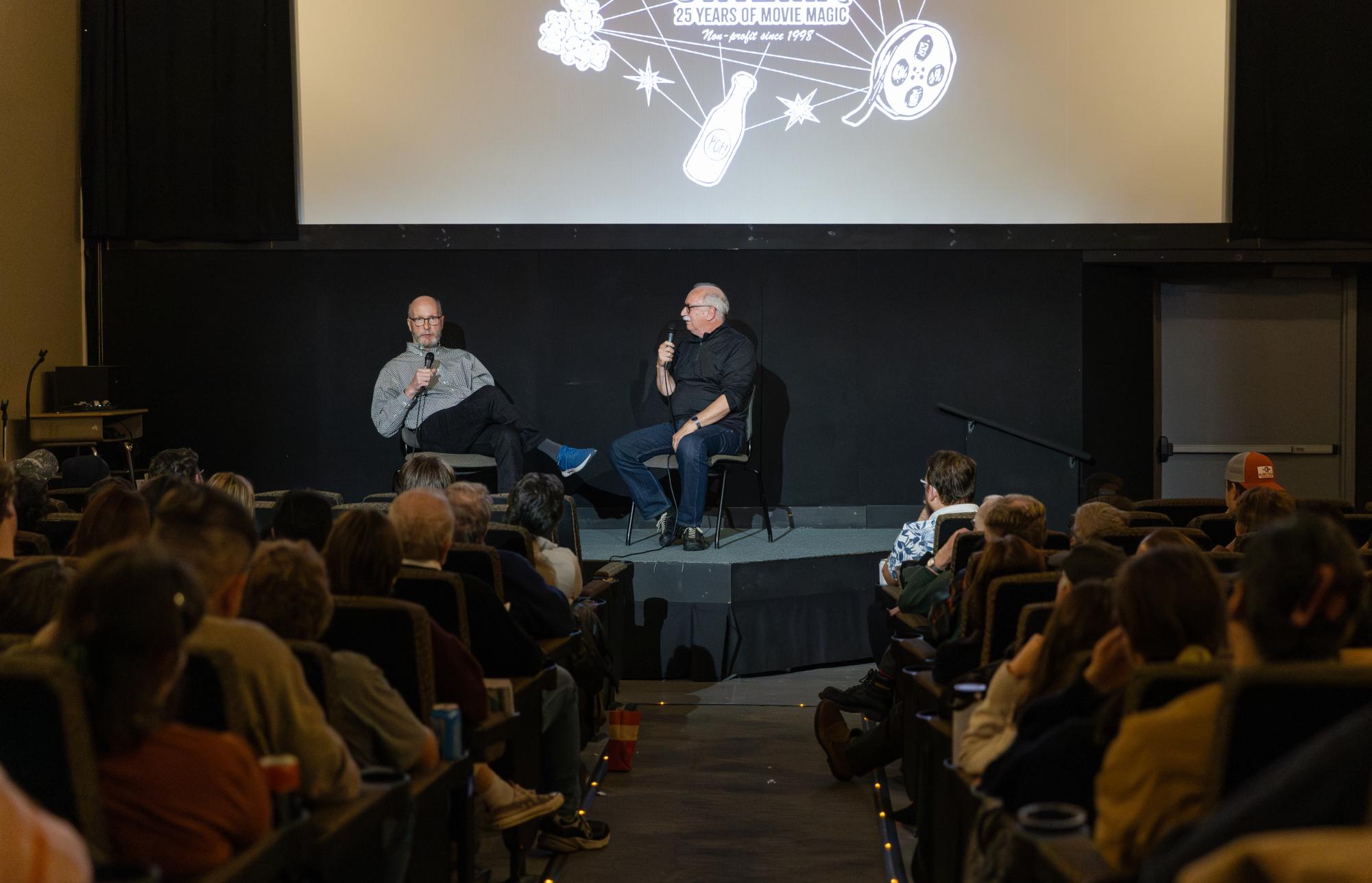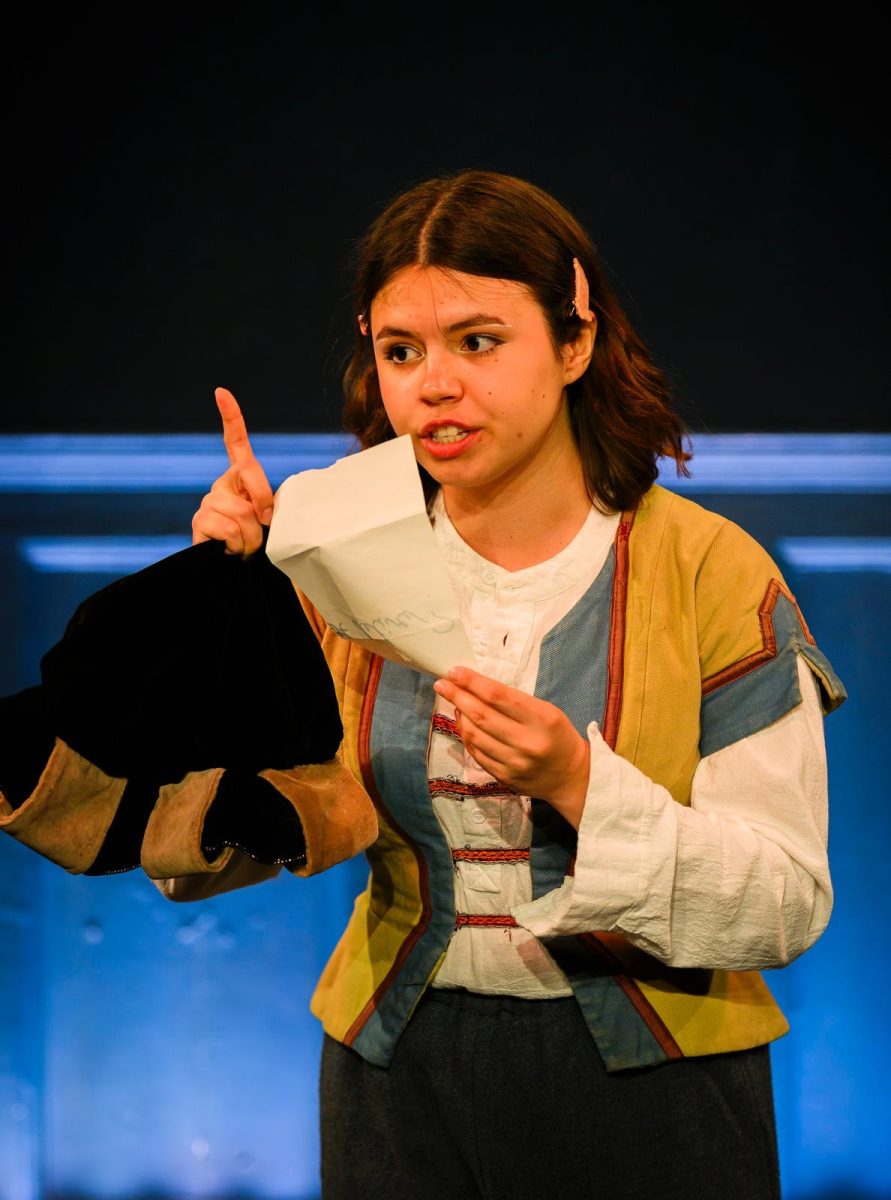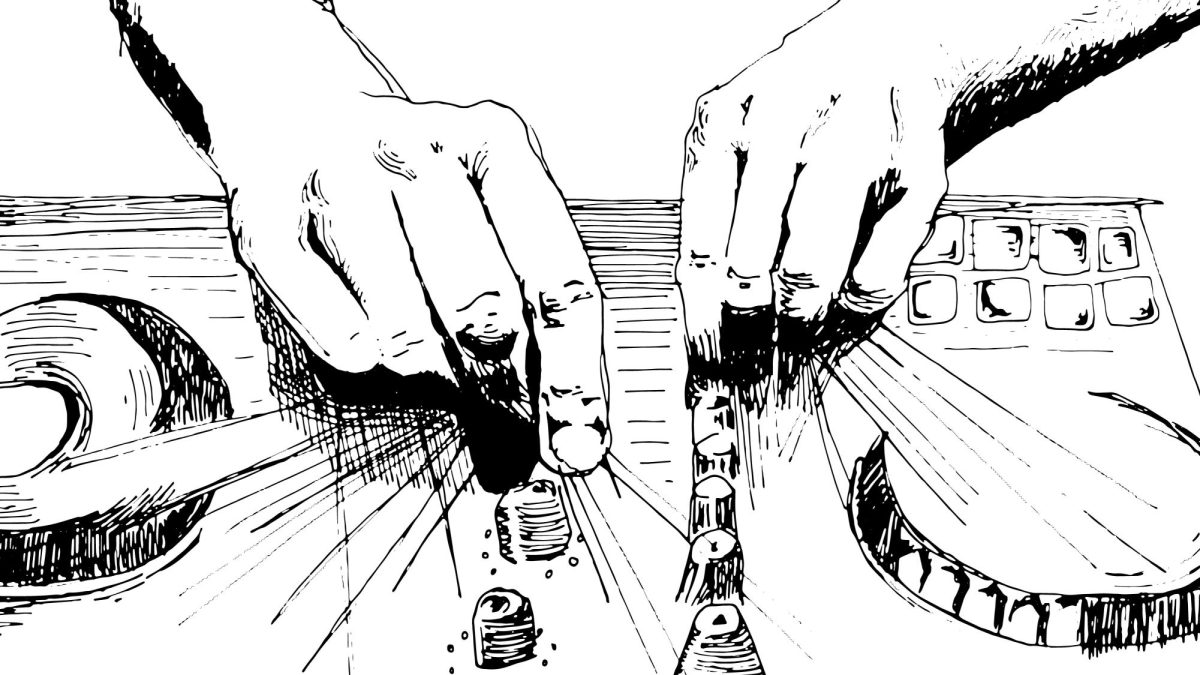
“I’m having an old friend for dinner.” So goes Hannibal Lecter’s infamous line in Jonathan Demme’s 1991 masterpiece The Silence of the Lambs. But we can’t credit the line to Demme or writer Thomas Harris, whose novel inspired the film. Instead, we can thank screenwriter Ted Tally for it.
On Oct. 16, Images Cinema hosted a conversation between Tally, the renowned screenwriter of The Silence of the Lambs, and Professor of English Jim Shepard. During the conversation, which followed a screening of the film, Tally and Shepard discussed the celebrated screenplay, which earned best adapted screenplay at the 1991 Academy Awards.
Shepard began by highlighting Tally’s cultural contributions. “The guy sitting next to me is partly responsible for the number-one all-time movie villain in film history and the number-one all-time female hero in film history,” he said, citing the American Film Institute’s 100 year ranking.
Shepard also praised the screenplay, which he said improved upon the novel by prioritizing the perspective of Clarice Starling — played by Jodie Foster — over other characters also featured in Harris’ work. He described the change as “addition by subtraction.”
“You have to decide whose story it really is, and I decided it’s her story,” Tally said. “It has to be her story.”
Tally also emphasized the unique challenges of the art of adaptation. “You have to be respectful but not slavish,” he said. “It’s a balance.”
Tally, who worked as an actor and playwright before becoming a screenwriter, grew up with an interest in movies noted for their screenwriting, citing film director and screenwriter Robert Benton, who directed Kramer vs. Kramer, as an influence. Tally also said that screenwriting allows a writer to be more imaginative than playwriting. “Screenwriting is playwriting liberated,” he said.
Tally also emphasized the emotional challenge of getting into Hannibal Lecter’s mind in the writing, adding that he held his newborn baby every night for comfort. “It’s not easy to put words in [Lecter’s] mouth,” he said.
Tally noted the challenges of capturing the audience’s attention as a screenwriter. “Once you establish tension, you have to maintain it,” he said. “The closer you are to the material, the harder it is to be in the audience’s mind.”
The casting process also allowed Tally to exert creative influence. He said that he always imagined Anthony Hopkins playing Lecter, highlighting the actor’s previous performance as Adolf Hitler in The Bunker. “You need someone classically trained in theatre,” he said.
Tally revealed that one of the film’s most famous scenes — in which a police officer is crucified — was not in the screenplay or novel but rather was a suggestion by Kristi Zea, the film’s production designer.
“Really, Kristi’s genius, not you,” Shepard joked. According to Shepard, an earlier version of the film’s script had a darker ending, in which Dr. Frederick Chilton — played by Anthony Heald — was strapped to a chair in his house in Chesapeake Bay, surrounded by dead security guards. On the phone Lecter would say, “Chilton, shall we begin?” Ultimately, though, it was Zea’s idea that made it into the movie.
Tally emphasized the importance of Clarice’s character to the choice he made in the film. When Demme suggested removing Clarice’s memory of the lambs from the film, Tally pushed back. “I don’t care about the lambs, but she cares about the lambs, and I care about her,” he said.
Tally also shared moments from the night of the 1991 Academy Awards. “It was very tense,” he said. In the opening skit of the night, actor Billy Crystal wheeled out on stage dressed as Lecter. “I thought it was a good omen,” Tally said. “I said [to Demme], ‘When I win, be prepared — I’m gonna give you a hug.’”
And when Tally won the award, he remembered Demme telling him, “It’s OK to smile.”
“It’s interesting to hear from the writer’s perspective how much your expectation is being factored into the construction of the film,” attendee Ruby Lawrence ’25 said after the talk concluded.
Catherine Shutt ’26.5, who also attended the screening and the talk, emphasized her appreciation for this version despite having seen every adaptation of Harris’ novel. “They’re great — but there’s something really magical about this movie for me,” she said.







